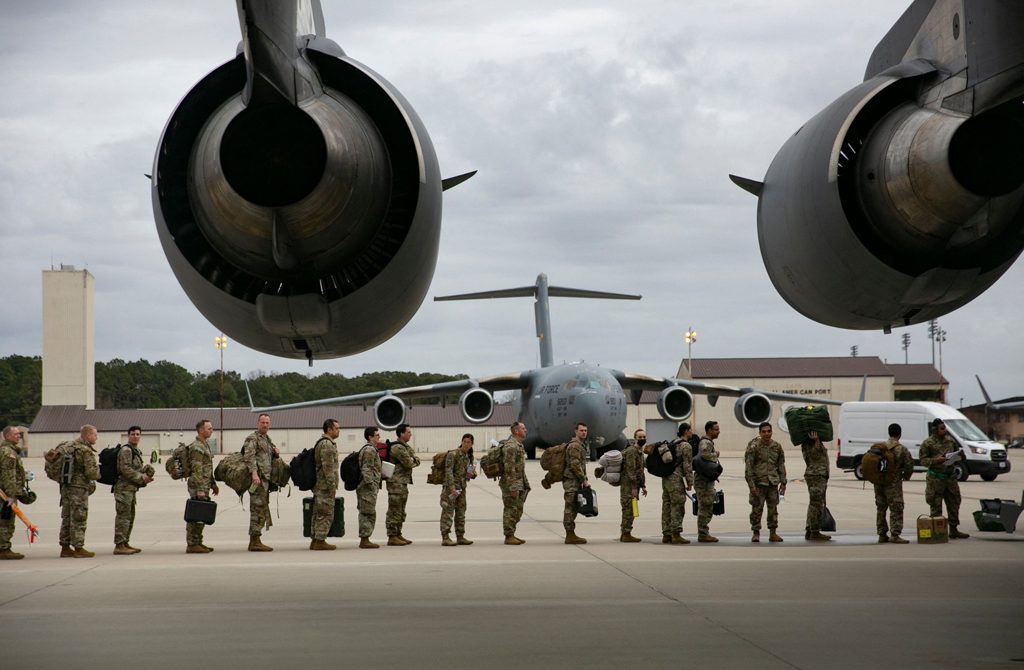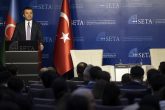Amid the debate over the looming war in Ukraine, Turkish President Recep Tayyip Erdoğan visited Kyiv on Thursday to attend the 10th meeting of the High-Level Strategic Council – which coincided with the 30th anniversary of diplomatic relations between the two countries. During Erdoğan’s visit, Turkey and Ukraine shook hands on eight deals, including a free trade agreement (FTA) to increase bilateral trade to $10 billion per year as well as defense cooperation agreements.
From Turkey’s perspective, strengthening its cooperation with Ukraine in various areas, including trade and defense, at this difficult time does not necessarily mean that it is undermining its relationship with Russia. Quite the contrary, the country is stressing the importance of diplomacy amid rumors that the Ukraine crisis could lead to a wider war in Europe. In this sense, Turkey hopes to leverage its close relations with both nations in an attempt to resolve the conflict.
In recent days, Ankara has been highlighting how the ongoing crisis could destabilize the Black Sea at every opportunity it gets. In this regard, Erdoğan assumed a different role compared to Western leaders who recently visited Ukraine. Viewing Ukraine as a friend and strategic partner, Turkey attempts to prevent the country from becoming the victim of a tug-of-war between the West and Russia. For this purpose, it has publicly volunteered to “mediate, facilitate or host diplomatic talks.”
Keeping in mind that Russian President Vladimir Putin will soon attend the High-Level Cooperation Council meeting in Turkey, one cannot help but think that leader-to-leader diplomacy could play a major role in preventing the Ukrainian crisis from escalating to war. After all, tensions between the United States and the United Kingdom on one side, and Russia on the other, over Ukraine threaten to lead to an entirely different point.
Indeed, it was Putin’s deployment of over 100,000 Russian troops to the Ukrainian border that escalated tensions in the region. The Kremlin also presented the U.S. and NATO with a list of maximalist demands, supposedly pursuing a grand bargain with the West. As such, in the initial days of the latest crisis, many commentators insisted that Moscow had cornered the Biden administration and NATO. Increasingly, however, analysts posit that it was actually the U.S. that tricked the Russian leader. Kyiv and Western governments do not seem to share Washington’s view that war could break out this month, it also seems unlikely that Putin will reach a grand bargain with the U.S.
According to El Pais, a Spanish newspaper, Washington told Moscow that it was willing to negotiate mutual disarmament on certain platforms, such as Organization for Security and Co-operation in Europe (OSCE) or the NATO-Russia Council, but reiterated its commitment to NATO’s open-door policy.
In other words, Ukraine was not categorically denied admission into NATO – which means that Russia’s “security concerns” were not addressed. The Biden administration’s approach, which has been called the Ukraine trap, is not lost on Putin, who insists that Washington does not care about Ukraine’s security and merely attempts to drag Russia into war.
Indeed, many believe that the Biden administration pursues a policy designed to drag the Kremlin into the “Ukrainian quagmire.” Let us recall that the Obama administration had made a similar calculation in Syria and ended up strengthening Putin’s hand in the Middle East. Still, the Russian leader would be better off not subjecting himself to severe Western sanctions at this time. After all, recognizing the Donbass republics won’t amount to what Russia has in mind regarding Ukraine. Instead, Putin could gain the upper hand by entering into negotiations with his country’s neighbor, with the help of certain European countries or Turkey, and prevent war. To get there, Putin needs to clearly understand where the American policy on Ukraine could lead Russia.
If the Ukraine crisis enters a new chapter, Erdoğan’s most recent visit to Ukraine, together with Putin’s upcoming trip to Turkey, could initiate a process of de-escalation. Indeed, the Russian leader could convey a new message to the Western alliance by agreeing to mediation by Turkey, a NATO ally.



